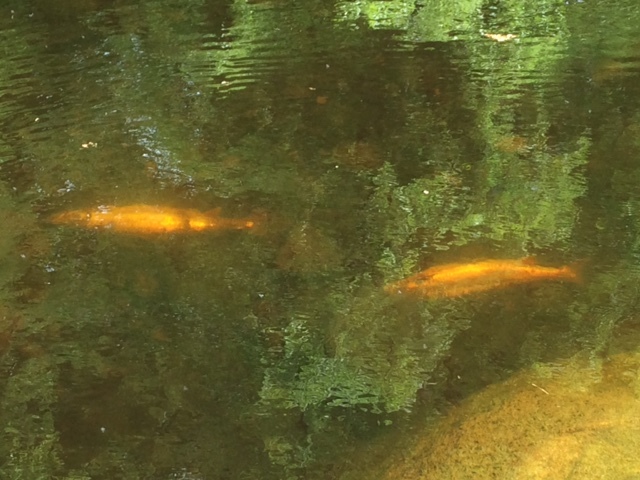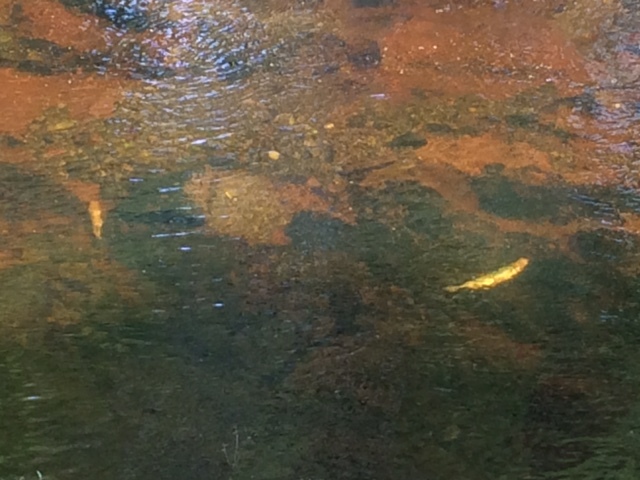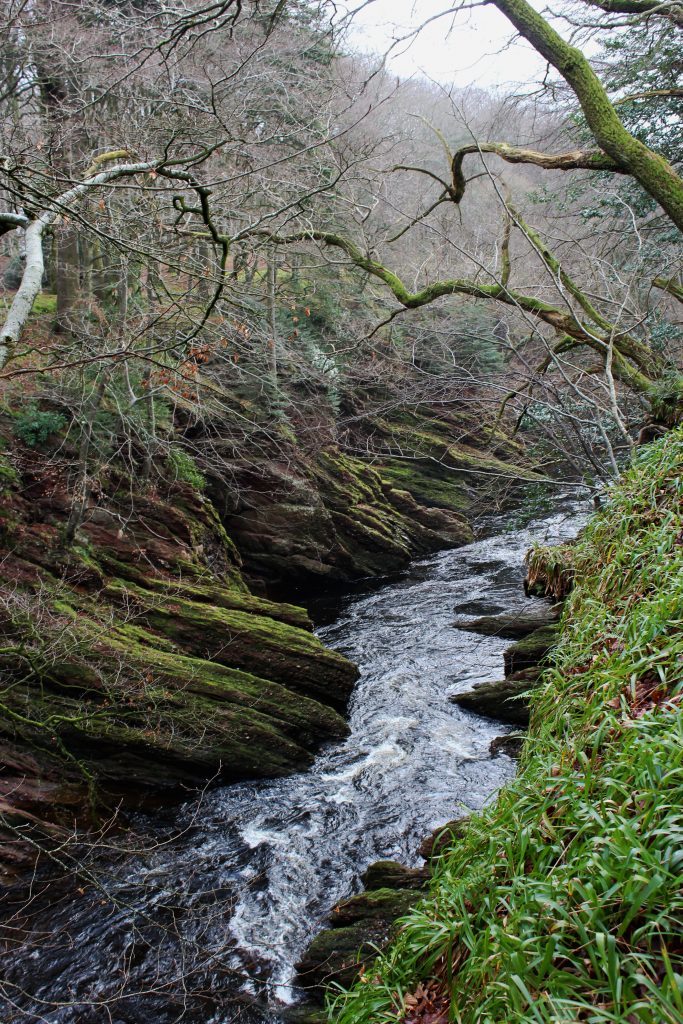A lethal fungal infection is killing off salmon in the North Esk River in Angus.
The Esk Rivers Fisheries Trust now wants to work with experts to find out more about the fungus that is decimating stocks.
The problem is plain to see at the Rocks of Solitude river circuit at Edzell where dead fish are lying in the water.
To contain the disease, fishermen have been asked not to remove salmon from the river.
A spokesman for the Esk Rivers Fisheries Trust said: “The sight of dead and dying spring salmon is sad and upsetting.
“We are aware of the problem and are hoping to work with Cardiff University on a three-year research project to establish more knowledge about the saprolegina fungus that is affecting our salmon here.
“The salmon become stressed in low water conditions when water temperatures can increase rapidly.
“Reduced water flows may enhance conditions for the fungal spores to multiply and spread amongst the salmon.
“Conditions for the salmon will improve with a strong spate of water to work the fungus and dead salmon out of the pools.”
Saprolegina is perhaps the most serious pathogen of wild adult salmon in the River Tay and its tributaries.
As a fungus it can attack damaged areas of live adult fish, but it also lives on dead fish, dead eggs or dead alevins, fry and juveniles.
Adult salmon are particularly susceptible for several reasons.
On entry to freshwater their skin is thinner and scales are looser than after they have been in freshwater for some time.
Fresh run fish can be very susceptible.
Saprolegnia can sometimes infect adult salmon earlier in their migration. Incidence of the disease tends to be highest when large numbers of salmon are present in a small area, particularly if they are prevented from moving upstream by a barrier, and they are presumably stressed.
For these reasons congregations of fish in low water conditions, downstream of a waterfall, a weir or even just in low water are very susceptible.
A spokesman for Salmon and Trout Conservation Scotland said: “It is quite upsetting for anglers to see this but it is a natural phenomenom that does occur on certain rivers on a regular basis in the later spring.
“Generally it clears up.”












